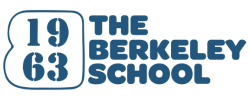Frequently Asked Questions
What are the program hours?
On our preschool campus, the school day runs from arrival at 8:30 am to a staggered dismissal between 2:45 and 3:05 pm. There is an Extended Day option available from minimum day dismissal until 5:30 pm.
At the University Avenue Campus, the gate opens at 8 am and class begins at 8:30 for all K-8 students. Afternoon pick-up is staggered by grade level:
Grades K-2: 3:05-3:15 pm
Grades 3-5: 3:20-3:20 pm
Grades 6-8: 3:35-3:45 pm
Friday dismissal is an hour earlier, and there is a UAC Extended Day option as well.
What kind of student is best served at The Berkeley School?
When my child leaves The Berkeley School, will they be prepared for a traditional high school?
How many teachers are in each classroom?
All of our Early Childhood classrooms maintain a low child to teacher ratio with two to three teachers in each classroom, depending on the program. Each of our K-6 classrooms are taught by one or two full-time teachers and several specialists who enrich student experience. Middle school students in grades 7 and 8 learn from seven core subjects faculty members. We strive to provide a personalized educational experience that develops each child’s best skills and exercises their challenges.
How big is The Berkeley School?
As an intentionally small school, we’ve found that a maximum class size of 20-25 students allows for topic breadth, collaboration, and building interpersonal friendships between our students.
What sets you apart from other independent schools?
We know that the best way to ensure student learning is to hire and retain motivated teachers whose desire to meet students’ needs is only matched by their dedication to continuous professional growth. Consequently, we invest heavily in professional development and in program administrators who can support faculty in improving their practice and implementing new approaches. Most of our faculty have attended Harvard’s “Project Zero Classroom Institute,” where cutting-edge, pedagogy-neutral research into teaching and learning is disseminated experientially and joyfully; all spend time observing at other schools (including Italy’s renowned Reggio Emilia preschools), and many lead workshops for the California Association of Independent Schools, the California Teacher Development Collaborative, and other local and national professional organizations. In addition, all TBS faculty participate in a year-long Seeking Educational Equity and Diversity (SEED) program, where they work to understand essential practices related to identity and privilege that, when implemented, allow a diversity community of learners to thrive. All teachers want to be successful, but few get to experience the level of support and commitment that they get from our school.
The Berkeley School also places a strong emphasis on social development. Beginning at our Early Childhood level and continuing through 8th grade, we structure our curriculum and instruction to include conflict resolution skills, empathy-developing role-playing, and student-led exercises and campaigns that address social issues that affect the school, the local community, and the world. Learn more about our Social Emotional Development program.
What is a typical day’s schedule at the ECC?
Classroom schedules at the ECC varies, but here’s an example of a typical day:
8:00-8:30 am – Before-School Care (optional, offered some years – inquire if interested)
8:30-9:00 am – Welcome and Free Play
9:00-9:20 am – Morning Circle / Curriculum Introduction
9:20-11:00 am – Open Work Period
11:00 am-12:00 pm – Outside Recess
12:00-12:45 pm – Circle Activities + Story Time/Lunch
12:45-1:00 pm – Clean up and transition to nap
1:00-2:30 pm – Nap (for those who nap)
1:00-1:30 pm – Rest (for non-nappers)
1:30-2:30 pm – Work Period (for non-nappers)
2:30-2:45 pm – Closing Circle and end of day preparation
2:45-3:10 pm – Pick-up (staggered by classroom)
3:00-5:30 pm – Extended Day (optional)
What kinds of adjustments are common for children coming from more traditional schools?
Do you offer sports?
Run by our dynamic PE teaching and coaching team, the Middle School program features co-ed teams in three sports: flag football in the fall, basketball in the winter, and volleyball in the spring. Teams are inclusive and accessible to all Middle School students who want to participate. Players learn the importance of communication, teamwork, and sportsmanship. They hone athletic skills and develop a healthy competitive spirit. The sports program for Middle School students is included as part of tuition.
Is it true that The Berkeley School doesn’t give grades?
Learning made visible is an essential component of our approach to education. Learning is a dynamic, never-ending process and we strive to make all parts of that process visible to children and to families. Detailed progress reports and twice-yearly family conferences are just the beginning. Classroom blogs, performances of understanding, portfolio reviews, engaging and appropriate take-home assignments, and school-wide exhibitions like the Art Show, Math Night, and our schoolwide Readathon make learning visible here at TBS and connect families with their children’s experience.
Do you give standardized tests?
Is The Berkeley School accredited?
What should I do if I missed the priority application deadline?
The Berkeley School offers rolling admissions on a space-available basis. The priority application deadline occurs every year in late January. If the deadline is passed and you’d like to learn more about rolling admissions, please contact us at admissions@theberkeleyschool.org.






